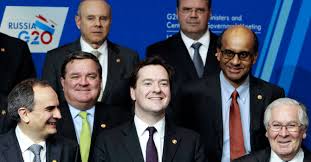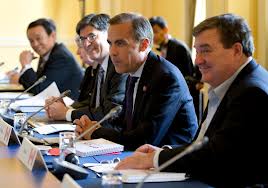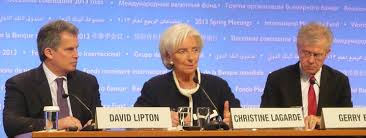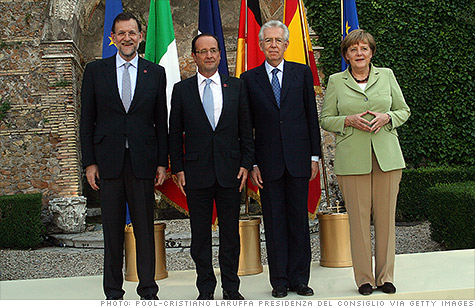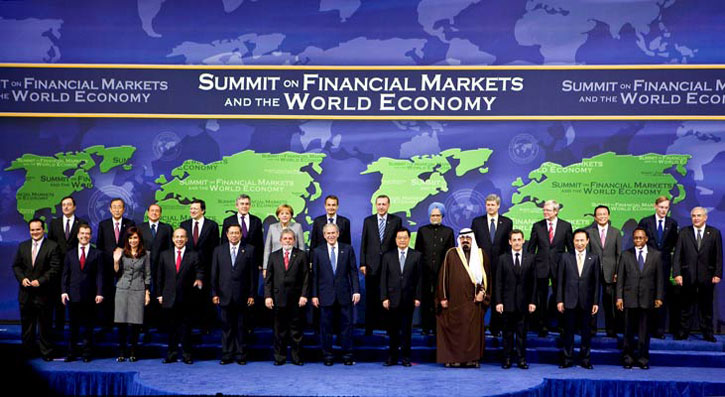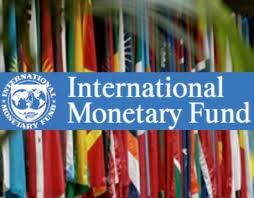
With our colleague Dan Drezner about to descend on the mighty University of Toronto, Dan was kind enough to alert me to a a recent Council on Foreign Relations Working Paper he’d just completed. Entitled, “The Irony of Global Economic Governance: The System Worked” Dan, so he suggested to me, would be using this paper as the basis of his remarks here in Toronto.
On title alone I commented to him that he’d finally become an “advocate for global governance”. While Dan was unwilling to sign onto my admittedly rather exuberant characterization, he was willing to concede that he was more positive now than he’d been in the past. Ah – at least some progress.
So let’s start with the conclusion. Dan writes:
None of this is to deny that global economic governance was useful and stabilizing at various points after 1945. Rather, it is to observe that even during the heyday of American hegemony, the ability of global economic governance to solve ongoing global economic problems was limited. The original point of Kindleberger’s analysis of the Great Depression [The World in Depression] was to discuss what needed to be done during a global economic crisis. By that standard, the post-2008 performance of vital institutions has been far better than extant commentary suggests. Expecting more that an effective response might be unrealistic. … The evidence suggests that global governance structures adapted and responded to the 2008 financial crisis in a robust fashion. They passed the stress test. The picture presented here is at odds with prevailing conventional wisdom on this subject.
Well amen to this last line of thought. And although Dan reflects that effectiveness to date is no guarantee of the future, he suggests that it is at least as likely that a renewed crisis could foster a greater policy coordination effort, which seem to have waned in the immediate post crisis period. As Dan concludes at the end of the Working Paper:
The post-2008 economic order has remained open, entrenching these interests even more across the globe. Despite uncertain times, the open economic system that has been in operation since 1945 does not appear to be closing anytime soon.
Amen.
But it is hard slogging, as Dan freely admits. Dan opens his analysis with the general critique that has accompanied the global governance efforts since 2008. They generally recognize three items that reflect the failure global economic governance – though I would just refer to this as global governance period. Critics, according to Dan, have focused on the collapse of the Doha trade round, the breakdown of the macroeconomic policy consensus – this at the Toronto summit 2010 – and the escalation of the sovereign debt crisis as clear signs of the failure of global governance. In examining each Dan identifies the rebound in fact of the global economy contrasting the Great Depression with the 2008 global financial crisis. And in general Dan shows that the global economy has rebounded much better than was the case in the 1930s.
On trade – and as Dan belatedly suggests, the Doha Round was a spent deal well before the crisis; it had little to do with the global financial crisis. But the trade institution world is probably not as healthy as Dan suggests. That is because Dan kinda combines the growth of trade – the market, the trade regime and the trade institution, the WTO into one. Trade flows have been growing and are robust. The market remains largely vibrant. The success can be laid at the doorstep of the global market and the trade regime – the GATT now the WTO and the explosion of the plurilateral regimes – yes the preferential trade agreements that have flourished since the Doha Round. An open trading system, equal trade treatment and the willingness to accept trade liberalization remain the rockbed of the global trade regime. This is the accepted set of norms. While protectionism rose with the economic crisis – especially among the major developed states – it rose to a far less damaging levels that many feared. So whether a large emerging market economy or a traditional economy the open trading system remains a foundation for the the global economy.
But the institution of the WTO is not particularly healthy. To the extent it is designed to promote trade negotiation – it abjectly is a failure. It is evident that absence of a real operating institution is at the heart of the problem not just with respect to trade negotiations but with the operating of the market. Now the judicial side is robust compared to any other international judicial institution, but the legislative and executive functions were inadequately addressed at the conclusion of the Uruguay Round – and it now costs this global governance institution mightily. The universal decision rule structure is, as with most such universal representation structures – largely incapable of effective decision-making – ergo the Doha Round.
On the multilateral investment front, Dan correctly points out, there isn’t one. Instead there is a myriad of bilateral and plurilateral investment protections regimes. According to Dan the data shows that there is a marked slow down in the generation of these bilateral investment treaties. That might be – though a number of interesting new agreements have been signed recently including a China-Japan-Korea agreement and a China-Canada one – but if you examine the number of ICSID or UNCITRAL investor-sate cases, – in the interests of transparency I should point out that have been involved in such cases for several decades – there has been an explosion of cases for the breach of investment protection. The system is doing what was intended. Also many free trade agreements incorporate investment protections into the comprehensive arrangements that are being concluded.
Where there is trouble is that a number of states – Venezuela in particular – have repudiated recent awards and the treaties of protection themselves. Furthermore, states such as Australia have insisted that their courts are adequate to hear foreign investor cases and refused to sign new investor-state agreements. Other states have created new model investment agreements that significantly narrow the scope of investor protection That does spell trouble.
On the macroeconomic and imbalances front, I do agree with his general conclusion that that the response was more robust than generally conceded by many journalists and experts. But I am not sure this should be laid at the doorstep of the United States. First many of the referenced statutes are purely national (that is not strange) but fail to really incorporate a wider collaborative standard. Dodd -Frank which of course isn’t even fully implemented – and could largely be repealed if Romney replace Obama – hardly takes into account the concerns of other key financial centers. As for Basel III there is was a much more collaborative effort of the G7 and G20 in its creation.
Some of Dan’s analysis suffers from a too narrow architectural framing as well. Dan and I have drawn “swords” over the definition of global summitry and derivatively global governance because Dan sees summits as stand alone leadership settings – G20, etc. Favoring an “iceberg theory” of global summitry, I see the structure of global summitry and governance as a galaxy or package of institutions – the leaders summit, ministerial meetings, transgovernmental regulatory networks of public and private institutions – all linked. Many of the advances in such esoteric organizations such the FSB, the BCBS, IOSCO, etc., let alone the more formal Bretton Woods institutions such as the World Bank and the IMF are being tasked to produce surveillance and evaluative reports, and international standards at the direction of the G20 leaders/ministerial gatherings. The architecture is a very decentralized structure but a linked one of institutions and organizations.
Finally, and briefly the Eurozone crisis is not at its heart a global matter, though it has likely huge global consequences. In fact in such a tightly wound interdependent world, it is hardly a surprise. But the heart of the action has to be with the eurozone and the EU. And it is the failure of will by key players, especially Germany and France, that have left the crisis on the front burner of global governance.
Now I think I will go off and hear Dan speak.

